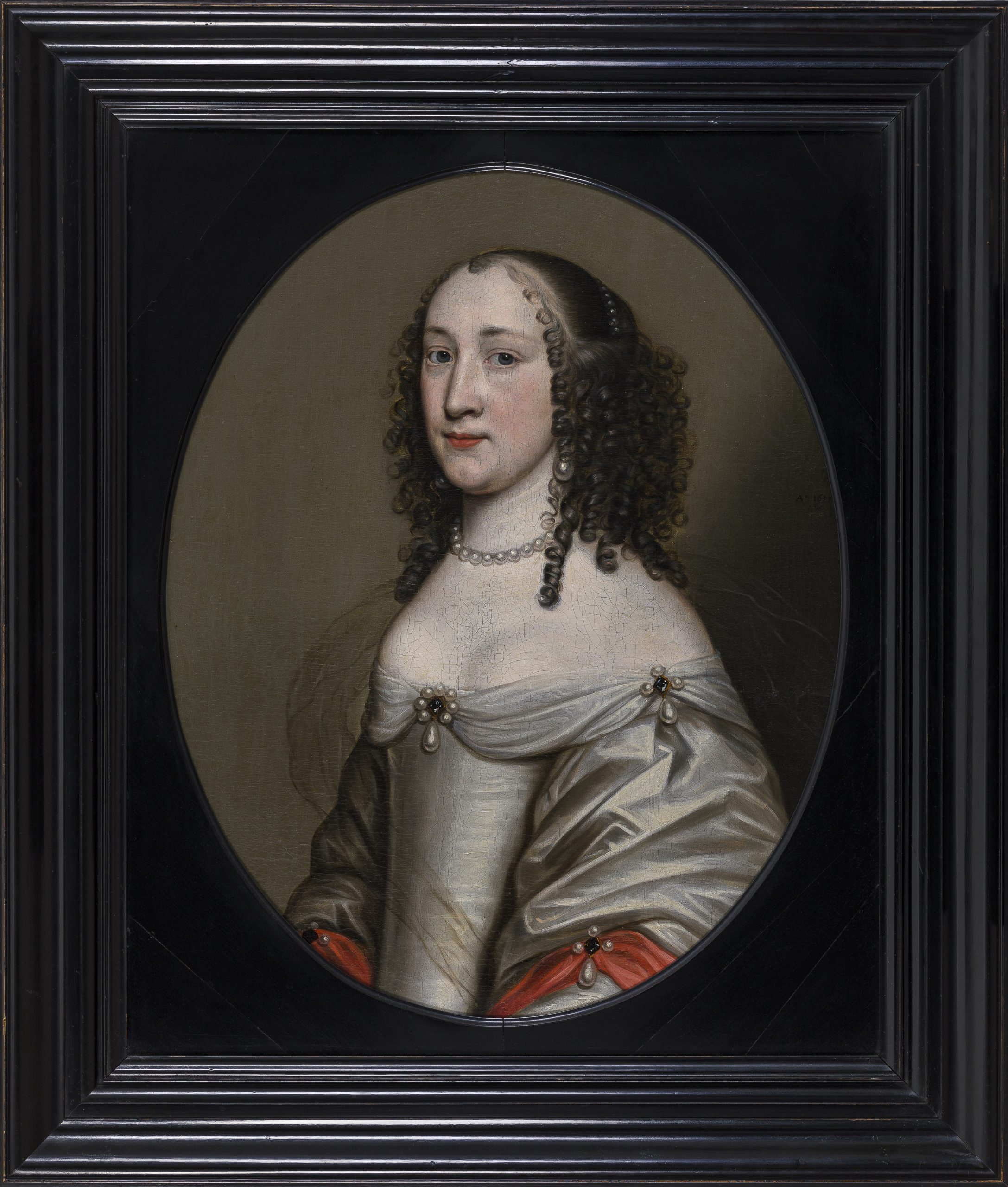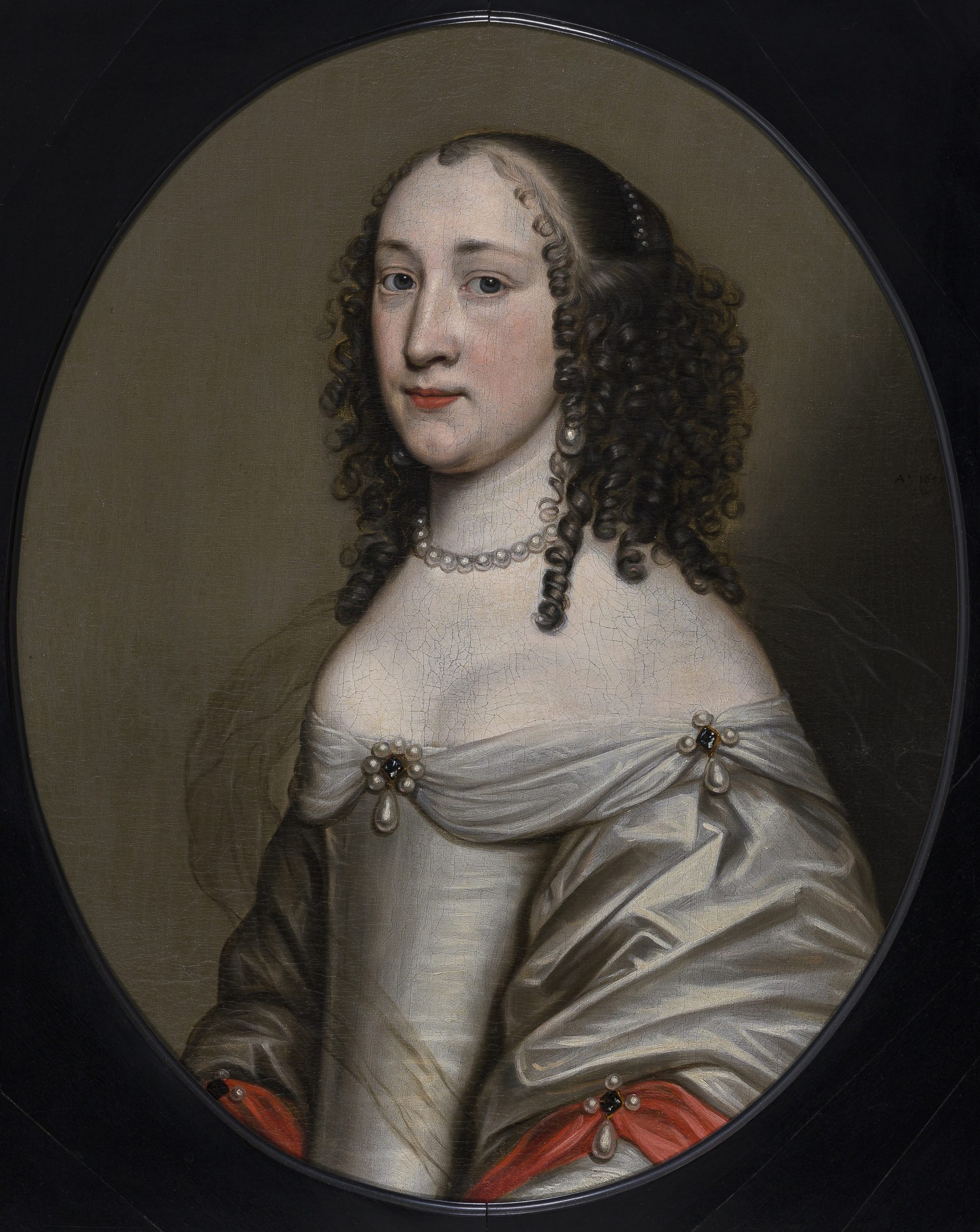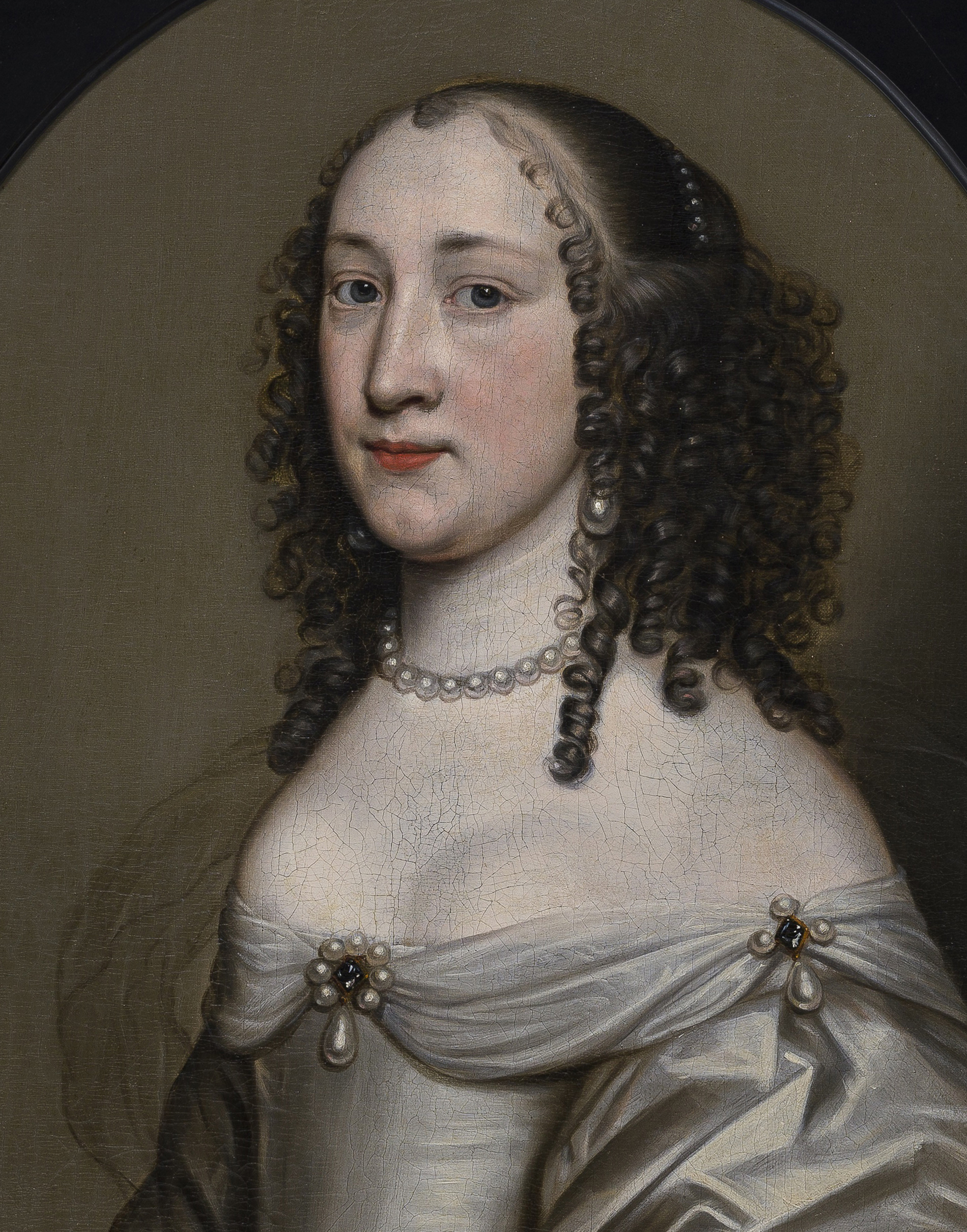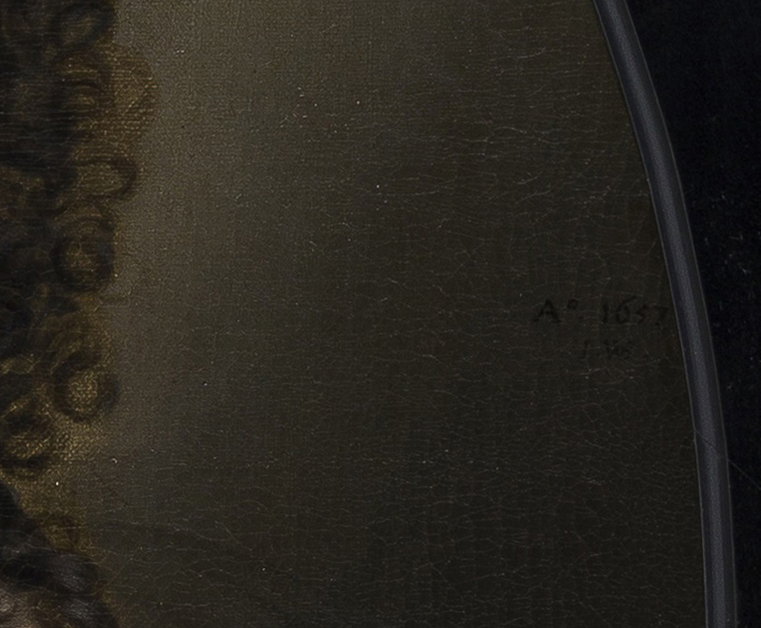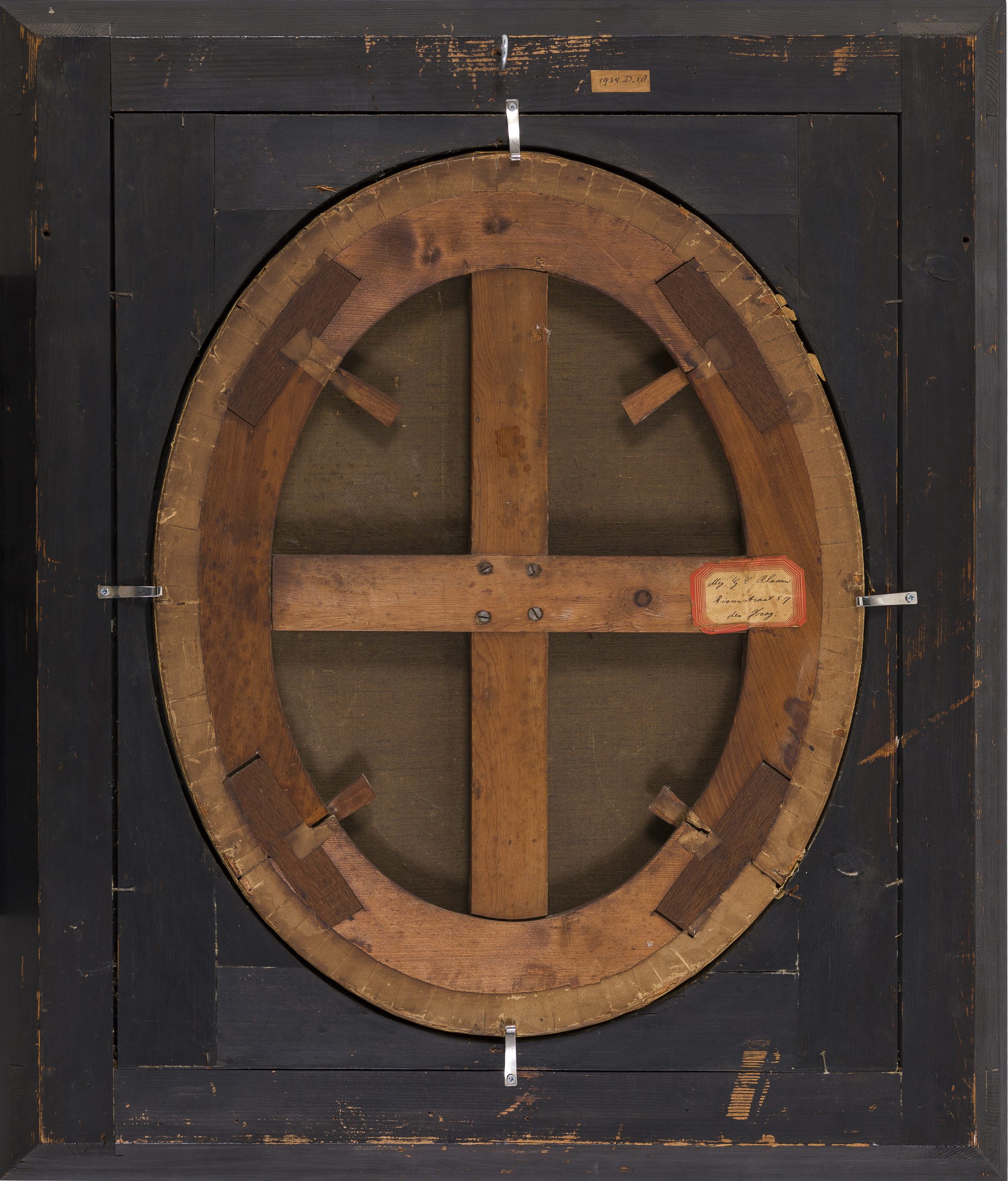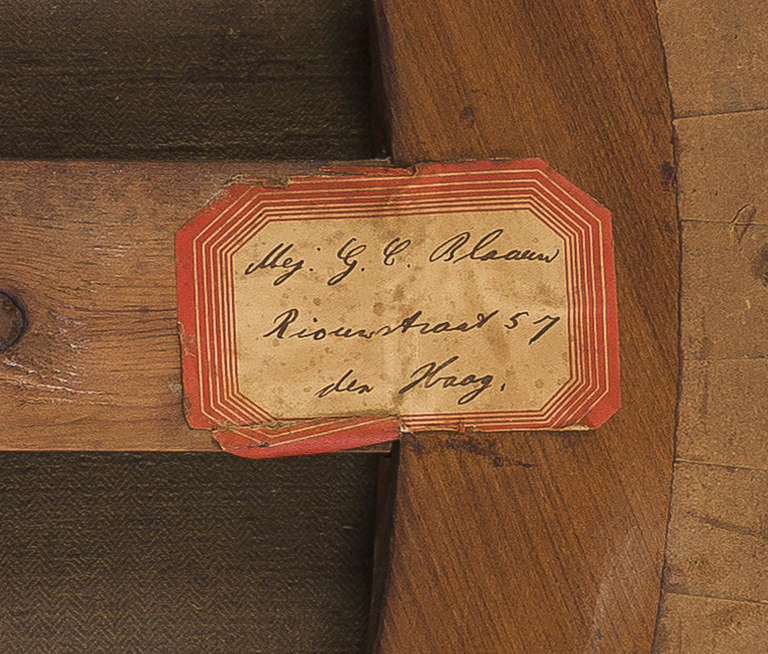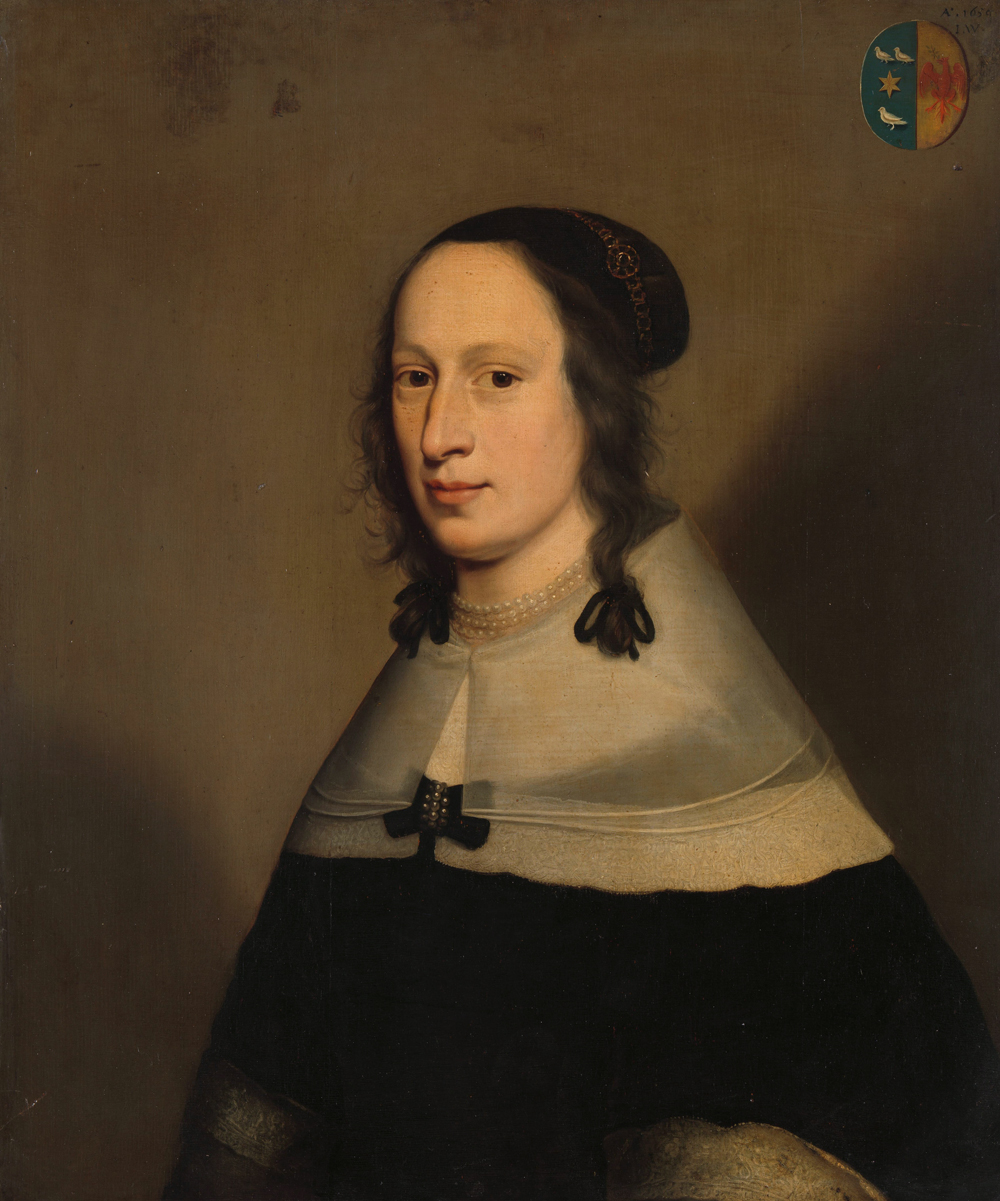JAN JANSZ WESTERBAEN I (The Hague c.1600/02 – 1686 The Hague)
Jan Jansz Westerbaen I (The Hague c.1600/02 – 1686 The Hague)
Portrait of a Lady in White
Oil on canvas, oval, 68 x 54.5 cm (26.8 x 21.5 inch)
Signed with monogram and dated ‘IWB [in ligature] / Ao 1657’
Provenance
~ Collection Miss G.C. Blaauw, The Hague
~ Jonkheer ir. Jacob Anton Quarles van Ufford (1889–1947) and Margaretha Quarles van Ufford, née Blaauw (1895–1971)
~ Jonkheer mr. Louis Pierre Quarles van Ufford (1927–1986)
~ Private collection, The Netherlands
***
Jan Westerbaen was the son of the rope-maker Jan Jacobs Westerbaen, younger brother of the author Jacob Westerbaen; their sister Anneke married the painter Salomon de Bray in 1625.1 The artist was mentioned as an apprentice of Evert van der Maes in guild records in 1619, and joined the painters’ guild in his own right in 1624, serving as its warden for several years. He was a co-founder of the painters’ association Confrérie Pictura in 1656. Westerbaen married the widow Maria Bartelmeesdr Suijster in 1630; their son Jan Jansz Westerbaen II also became a painter, and was taught by his father.
Westerbaen spent his whole working life in The Hague and his elegant portraits were much influenced by the works of Gerard van Honthorst (1592–1656). Honthorst’s portraits in the Flemish manner were highly favoured and he was patronised by members of the Stadtholderly family, the ‘Winter’ King and Queen of Bohemia, and members of their entourage. Westerbaen seems to have received commissions from the middle ranks of The Hague’s elite. These portraits can be compared to Westerbaen’s portrait of Sophia van Overmeer (1608–1684), wife of Adriaen van Persijn, dated 1650 and preserved in the Rijksmuseum, Amsterdam (fig.).2
These two sitters are thought to have been members of the Blaauw or Blaeuw family, possibly two sisters. Originally, the Blaauws were wealthy wood merchants from the Zaan area. By the beginning of the Golden Age another branch of the family lived in Amsterdam: Cornelis Michielsz Blaeuw (1591–1638) and his wife Weyntge Oetgens had four daughters: Catharina (b.1620), Vrouwtje (b.1626), Debora (1629–1702) and Cornelia (1634–c.1680). Debora married three times, secondly to Johannes Hudde (1628–1704), Burgomaster of Amsterdam – their portraits were painted by Michiel van Musscher in 1680.3 Cornelia was married to Henric van Weede (1631–c.1700).
1. For the artist, see Edwin Buijsen and Charles Dumas (eds.), Haagse schilders in de Gouden Eeuw: het Hoogsteder lexicon van alle schilders werkzaam in Den Haag 1600-1700, The Hague 1998, pp. 264-267 and A. van der Marel, ‘Westerbaen. Een Zuid-Hollands geslacht van lijndraaiers, dichters, kunstschilders en theologen’, De Nederlandsche Leeuw 79 (1962), cols. 74-93, 106-119 and 148-167.
2. Oil on canvas, 68 x 57 cm, inv. no. SK-A-1478; P.J.J. van Thiel, All the Paintings of the Rijksmuseum in Amsterdam, Amsterdam 1976, p. 602, repr.
3. Both oil on canvas, 57 x 49 cm; the portrait of Debora is in the Van Weede family foundation; the portrait of Johannes is in the Rijksmuseum, inv. no. SK-C-528; Van Thiel, op. cit., p. 404, repr., see also J. Bikker, ‘An Amsterdam burgomaster reunited with his wife. Michiel van Musscher's portraits op Johannes Hudde and Debora Blaauw’, The Rijksmuseum Bulletin 59, 1 (2012).
